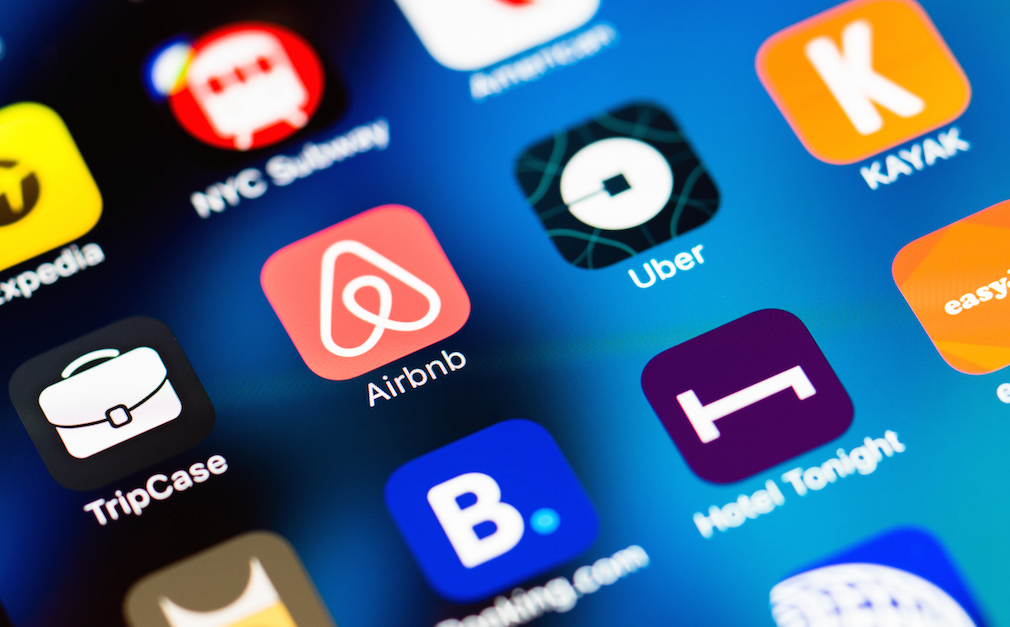The sharing economy is beginning to dominate our culture, especially among the younger generations.
If I’m going to be without a car for the day, I don’t find a bus station, I call for an Uber. If I waited too long to book my hotel room and it gets sold out, I don’t cancel my vacation, I rent an Airbnb.
But wouldn't something with such a tremendous impact on our daily lives also impact the markets we traditionally operate? In fact, does the traditional housing market stand a chance in the face of this new development?
So HousingWire needed to ask this: Will Airbnb disrupt local housing markets?
In the September magazine, we reviewed one particular market and found, in fact, it does. Not good for our first start.
It all started a couple weeks ago, when I talked about how the sharing economy affects the nation’s Gross Domestic Product:
The sharing economy that’s on the rise with apps such as Uber and Airbnb could also cause a significant change in GDP calculations.
“Things are changing,” mortgage industry writer Rob Chrisman said in his daily newsletter. “And if everyone on the street doesn't need to buy or own their own shovel, or their own car, and the world needs to make fewer of them over time, what does that do to manufacturing-related GDP as the years pass?”
On page 44 of the September edition HousingWire magazine, I talked about how Airbnb is effecting the New Orleans housing market. The results were shocking. So shocking we've now released the article from its paywall, free for all to share [Subscribers had access from the 1st of the month, though.]
A quick fact that shows the enormity of the impact is that if all the Airbnb listings in New Orleans that had the entire home leased out and also had a high availability were put on the market, listings would increase by nearly 30%.
In a letter sent on July 13 to Federal Trade Commission Chairwoman Edith Ramirez, several prominent senators expressed their concern. Sens. Brian Schatz, D-Hawaii; Elizabeth Warren, D-Mass, and Diane Feinstein, D-Calif, stated that they are especially concerned that short-term rentals are not only making housing more expensive in certain communities, but also making it harder to buy a house in the first place.
Reminder: readers who are subscribed to the HousingWire magazine saw this information, and much more about how Airbnb is effecting the market, over three weeks ago.
Now, for the first time, we are so convinced that this is information the public needs to see that we are making an unprecedented decision to move this story out from behind the paywall for the next two weeks. You can now read the story for free here.
In the article, experts talk about different government regulations that have attempted to eliminate or cut back on Airbnb usage, and why some of those attempts failed.
For example:
The second problem with this approach lies in the consequences for violating the regulations. In many cases, they are not strong enough to prevent Airbnb users from continuing to rent out their homes.
“The fines for violating the Santa Monica ordinance are not high enough to significantly deter the behavior,” said Jennifer Connolly, University of Miami assistant professor of political science. “For instance, a rental operator in Santa Monica was recently fined $3,500 for illegally renting five residential properties within the city.
“Given the potential profit margins of short-term renting, such a fine may not deter investors from continuing to engage in short-term rentals of fewer than 30 days,” she said.
HousingWire continued to follow Airbnb’s effect on the economy, including my article on how it is causing confusion in the refi market.
The magazine story, however, shows our most in-depth coverage to-date, and offers compelling evidence of the disruptions Airbnb is causing the housing market in New Orleans and other cities throughout the U.S.
We think this information is important enough to give it to you free, but we can only keep it out for two weeks. Your time starts now.





